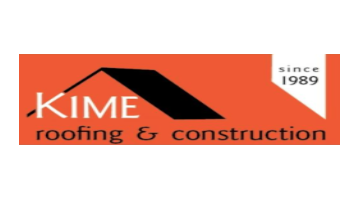WE KNOW CONSTRUCTION LAW
Lovein Ribman is a Texas based construction law firm who represents the construction industry in every county throughout the entire state of Texas. Our firm is led by Board-Certified Construction Attorneys (an honor held by only 135 attorneys in the state) who have been assisting Engineers, Architects, Contractors, Subcontractors, Material and Equipment Suppliers, Vendors, and Laborers with securing payment through the “Lien process” for over 15 years. Based on our experience, there is nothing better than invoking the Lien process to secure and enforce payment for unpaid labor, materials, and/or equipment. To increase the probability of being paid, you should begin the process early and retain a Board-Certified Construction Lawyer to assist you. If you are considering filing a Lien on a residential or commercial Project, please contact us for a free consultation by calling our toll-free number at (888) 368-2483 or by submitting the Contact Form. Read below to learn more about the Lien filing process, deadlines, and commonly asked questions/answers. To learn more about preparing and serving a Notice of Claim (“Preliminary Notice”, “Pre-Lien Notice” or “Intent to Lien”), which anyone not hired by the Property Owner must timely serve before filing a Lien, CLICK HERE.
WHO HAS THE RIGHT TO FILE A LIEN?
Any Original Contractor, Subcontractor, Laborer, Material Supplier, Architect, Engineer, Landscaper or Surveyor, who has provided labor, material, equipment, plans, plats, or surveys to a Property for the construction or repair of a house, building, or a structure may have the right to file a Lien against the Property if they have not been paid for their work. In contrast, Public Adjusters, Designers, and Decorators generally do not have Lien rights. Moreover, if the work was performed on a government owned Project, then no one has the right to record a Lien, but instead may make a claim against the Payment Bond.
WHAT ARE THE NECESSARY STEPS FOR FILING A LIEN?
Below are the bare minimum steps that must be completed in order to perfect a Lien. The deadlines and documents used to complete these steps vary depending upon whether the Property is commercial, residential, or a homesteaded Property.
When Hired by the Property Owner or Property Owner’s Agent
Step One: Prepare and file a Mechanic’s Lien Affidavit with the County Clerk’s Office in the county where the Property is located within the deadline (See below for the Lien filing deadlines). Depending upon the nature of the work and the type of Property the Lien is being filed against, the Affidavit may be prepared as a Statutory Lien, a Constitutional Lien, or both.
Step Two: Serve the Lien Affidavit on the Property Owner within no later than five business days from filing. The Lien Affidavit should be served as an enclosure to a strong Payment Demand Letter referencing other construction-related payment statutes like the Prompt Payment Act and the Trust Fund Statute.
Step Three: File a Lawsuit to foreclose the Lien if not paid within a reasonable time after recording the Lien and before the deadline to file a Lawsuit runs, or waive your right to enforce the Lien.
When Not Hired by the Property Owner or Property Owner’s Agent
Step One: Serve the Property Owner and the Original Contractor with a Notice of Claim (also referred to as a Preliminary Notice, Pre-Lien Notice, or Intent to Lien) within the statutory deadline. Click Here to learn more about the Notice of Claim requirements and deadlines.
Step Two: Prepare and file the Lien Affidavit with the County Clerk’s Office in the county where the Property is located within the statutory deadline (See below for the Lien filing deadlines).
Step Three: Serve the Lien Affidavit on the Property Owner and Original Contractor within no later than five business days from filing. The Lien Affidavit should be served as an enclosure to a strong Payment Demand Letter referencing other construction-related payment statutes like the Prompt Payment Act and the Trust Fund Statute.
Step Four: File a Lawsuit to foreclose the Lien if not paid within and reasonable time after recording the Lien and before the statutory deadline runs, or waive the right to further enforce the Lien.
ARE THE REQUIREMENTS AND DEADLINES DIFFERENT FOR FILING A LIEN ON A “COMMERCIAL” PROPERTY VERSUS A “RESIDENTIAL” PROPERTY?
The Preliminary Notice and Lien filing requirements/deadlines are different for “residential” and “commercial” Properties. As such, the first step is to determine whether you supplied labor/material/equipment to a “residential” Property or a “commercial” Property as defined under the Texas Property Code. If the Property is not “residential,” then it is “commercial” by default.
A “residential Property” is a single-family house, a duplex, a triplex, a quadruplex, or a unit in a multi-unit structure (like a condo) that is used for residential purposes and that is:
(2) used or intended to be used as a dwelling by one of the Property Owners.
Therefore, if the Property Owner is a company (like a builder), then the Property is likely commercial and not residential for Lien purposes. In contrast, if the Property Owner lives in or intends to live in the house, then the Property is likely considered “residential” for Lien purposes.
EXAMPLE: Here are some basic examples to consider: your next-door neighbor’s house, if rented, would not be a residential Property since the Owner does not live in the house and since it is being used to generate income. A spec house or a house in a large-scale development would not be residential if it has not yet been sold and occupied by its Owner. An apartment complex is not a residential Property if the units are rented. Therefore, just because something looks like a “residence” does not mean that it is a residential Property for Lien purposes.
TIP: The Notice of Claim and Lien filing deadlines are shorter for residential Properties than they are for commercial Properties. Additionally, there are special requirements which must be followed if the Property is a residential homestead Property. Therefore, it is always better for the Lien Claimant if the Property is considered “commercial” rather than “residential.” If unsure, you should consider following the residential deadlines/requirements in that they are more restrictive.
ARE THE REQUIREMENTS AND DEADLINES FOR SERVING AND FILING LIEN DOCUMENTS DIFFERENT IF YOU WERE HIRED BY THE PROPERTY OWNER, ORIGINAL CONTRACTOR, OR A SUBCONTRACTOR?
The requirements and deadlines for serving Preliminary Notices and filing the Lien Affidavit are different depending upon who hired you. Therefore, the second step in analyzing your Lien rights is to confirm who you were hired by.
If you were hired by the Property Owner, then you are an “Original Contractor” even if you only supplied materials. Keep in mind that if you were hired by the Owner’s Authorized Agent, then you have been hired by the Property Owner. An example of a Property Owner’s Agent might be an apartment management company who is authorized to retain Contractors to perform work at the Property.
If you were hired by the Original Contractor, then you are a First-Tier Subcontractor/Supplier/Laborer.
If you were hired by a Subcontractor/Supplier/Laborer of any level, then you are considered a Second-Tier Subcontractor/Supplier/Laborer for Lien purposes. Prior to the 2022 lien law amendments, Second-Tier Subcontractors/Suppliers were required to serve an additional Notice by no later than the 15th day of the second month from providing the unpaid labor/material/equipment. However, the 2022 amendments have repealed this requirement and now all tiers of Subcontractors/Suppliers/Laborers are only required to serve a Notice of Claim by the 15th day of the third month from each and every month unpaid labor/material/equipment was provided to the Property. CLICK HERE to learn more about the Notice of Claim requirements and deadlines.
ARE THE REQUIREMENTS AND DEADLINES FOR SERVING AND FILING LIEN DOCUMENTS DIFFERENT FOR “UNPAID PROGRESS PAYMENTS” VERSUS “WITHHELD CONTRACTUAL RETAINAGE”?
The 2022 lien amendments re-define “retainage” as “an amount representing part of a contract payment that is not required to be paid to the Claimant within the month following the month in which labor is performed, material is furnished, or specially fabricated material is delivered.” In other words, “retainage” is the amount an Original Contractor or Subcontractor can withhold from its Subcontractor or Supplier from a progress payment as allowed by the subcontract. Note, “retainage” or “contractual retainage” is not the same as “statutory retainage”, of which the 2022 lien amendments now refer to as “Reserved Funds”. Reserved Funds are the 10% a Property Owner is required to withhold from an Original Contractor’s progress payment until 30 days from completion of the Project.
Step One—Serve Notice of Contractual Retainage: If you were not hired by the Property Owner, or the Property Owner’s Authorized Agent, then you must notify the Property Owner in writing that your contract allows the contractor who hired you to withhold retainage from your progress payments. If your contract is with a Subcontractor, then you must serve the Original Contractor with the Notice as well. The Notice must be served within the earlier of: (1) the 30th day from when you complete, terminate, or abandon your contract; or (2) before the 30th day after the contract between the Property Owner and the Original Contractor is completed, terminated, or abandoned. This simple Notice requirement can easily be incorporated into the standard Notice of Claim for unpaid progress payments or sent independently.
Step Two—File the Lien Affidavit: A claim solely for withheld contractual retainage does not accrue until the contract between the Property Owner and the Original Contractor is completed, settled, terminated, or abandoned. Once that has occurred and if you have timely served the required Notice, then under the 2022 lien amendments, you have until the 15th day of the third month (for both residential and commercial Projects) to timely file a Lien Affidavit for unpaid retainage. As such, if you provide labor/material/equipment at the outset of a large-scale Project, it is likely that your deadline to file a pure retainage Lien may not arise until well after you have completed your work.
Example: Assume that in March you installed and completed the foundation on a commercial Project and that the entire Project was not completed until December of that same year. You would then have until March 15th of the next year to timely file the retainage Lien. (See below for a Warning.)
Warning: Generally speaking, a Property Owner is permitted to release final payment (typically withheld statutory retainage) to the Original Contractor within 30 days after completion of the entire Project. If a Property Owner timely receives Notice of Contractual Retainage (as discussed above) it should not release the statutory retainage to the Original Contractor until after the deadline to file a Lien for contractual retainage has passed. However, Property Owners do not always know or follow the law. Therefore, best practice is to always file your Lien Affidavit for withheld contractual retainage within no later than 30 days from completion of the Project as opposed to waiting until your deadline.
CAN I FILE A LIEN IF THE WORK WAS PERFORMED FOR A COMMERCIAL TENANT?
Yes, you can; however, the Lien will only extend to the “leasehold interest” held by the tenant as opposed to the real Property itself. A leasehold interest is the interest that a tenant has to use the Property by and through the lease agreement. This is typically not the type of “interest” that you would want to foreclose on through a Lien. However, there are two major benefits of a leasehold interest Lien.
First, the lease agreement between the tenant and the landlord should include a provision which expressly prohibits the tenant from allowing a Lien to be filed against the Property or against the “leasehold interest.” Consequently, by filing the Lien, you may put the tenant in default of the lease. Second, as an incentive to a new tenant or to keep a pre-existing tenant, landlords will commonly agree to pay for some of the tenant improvements. The landlord will not release that money until the construction is complete and the tenant has obtained a Lien waiver from the Original Contractor representing that all subcontractors/suppliers/vendors have been paid in full. By filing a Lien, you will likely prevent the release of the TI money until your Lien is resolved.
The process for filing a Lien against the leasehold interest is exactly the same as filing a Lien against the real Property, with the only two differences being that the tenant becomes the “Property Owner” (since it owns the leasehold interest) and the Property description should state that the Lien is being recorded against “the leasehold interest owned by [tenant’s name] for real Property located at [address and legal description].” All other requirements are the same.
CAN I FILE A LIEN EVEN IF I DO NOT HAVE A WRITTEN CONTRACT?
Prior to the 2022 lien amendments, Architects, Engineers, Surveyors and Landscapers did not have lien rights unless their work was performed pursuant to a written contract. For commercial projects, the 2022 lien amendments have removed the requirement that the contract be in “writing”. As such, as long as the work was performed pursuant to either a written or verbal agreement, then all categories of Contractors, Subcontractors, Laborers, Landscapers and Professionals have the right to file a Lien if all other requirements have been satisfied.
Homestead Properties: To have statutory Lien rights on a residential homestead Property, the Original Contractor must: (1) have a written contract signed by the Property Owner (if they are a married couple, then both must sign the contract); (2) before the work begins; and (3) the contract must be filed with the County Clerk’s Office.
WHAT IS THE DEADLINE FOR FILING A LIEN ON A COMMERCIAL PROPERTY?
When Hired by the Property Owner: At the very latest, the Lien Affidavit must be filed with the County Clerk’s Office in the county where the Property is located by no later than the 15th day of the fourth calendar month from when the contract is terminated in writing, has been completed, finally settled, or abandoned.
Example: Assume that you completed your contract in January, then your Lien Affidavit must be filed by no later than May 15. Alternatively, assume that the Property Owner terminated your contract in writing in January, then your Lien Affidavit would still need to be filed by no later than May 15.
Exception for Constitutional Lien: If you were hired by the Property Owner or the Property Owner’s Agent, then you may also have a right to file a constitutional Lien against the Property if your work affected the structure. The type of work typically not covered by a constitutional Lien might include: (1) landscaping that does not affect the structure; (2) supplying or installing plant materials; (3) irrigation; (4) underground wells; (5) demolition; and/or (6) fencing. Unlike a statutory Lien, a constitutional Lien can potentially be filed within up to four years after providing labor or material to the Property or before the Property is sold to a purchaser who is not aware of the debt. A constitutional Lien is easily asserted by adding additional language in a statutory Lien Affidavit or by way of its own independent Lien Affidavit.
When Not Hired by the Property Owner: For Subcontractors, Material Suppliers, Vendors, or Laborers, the deadline to file a Lien depends upon whether the unpaid amount is a “progress payment” or withheld “contractual retainage”.
If you were hired by the Original Contractor, a Subcontractor, or a Material Supplier, then at the very latest, your deadline to file a Lien Affidavit for unpaid progress payments (or anything other than withheld contractual retainage), is by no later than the 15th day of the fourth month from when you last provide labor/material/equipment to the Project, excluding warranty work.
If your claim is purely for unpaid withheld contractual retainage, then at the very latest, your deadline to file the Lien Affidavit is by no later than the 15th day of the third month (as modified by the 2022 lien amendments) from when the contract between the Property Owner and the Original Contractor has been completed, finally settled, terminated, or abandoned.
Notwithstanding the above deadlines, to ensure that your Lien attaches to the 10% statutory retainage being withheld by the Property Owner from the Original Contractor, you must file your Lien Affidavit within no later than 30 days from completion, abandonment, or termination of the prime contract (the contract between the Property Owner and the Original Contractor), regardless of the above-referenced deadlines.
WHAT IS THE DEADLINE FOR FILING A LIEN ON A RESIDENTIAL PROPERTY?
When Hired by the Property Owner: At the very latest, the Lien Affidavit must be filed with the County Clerk’s Office in the county where the Property is located by no later than the 15th day of the third month from when the contract is terminated in writing, has been completed, finally settled, or abandoned.
Example: Assume that you completed your contract in January, then your Lien Affidavit must be filed by no later than April 15. Alternatively, assume that the Property Owner terminated your contract in writing in January, then your Lien Affidavit would still need to be filed by no later than April 15.
Exception for Constitutional Lien: If you were hired by the Property Owner or the Property Owner’s Agent, then you may also have a right to file a constitutional Lien against the Property if your work affected the structure. The type of work typically not covered by a constitutional Lien might include: (1) landscaping that does not affect the structure; (2) supplying or installing plant materials; (3) irrigation; (4) underground wells; (5) demolition; and/or (6) fencing. Unlike a statutory Lien, a constitutional Lien can be potentially filed within up to four years after providing labor or materials to the Property or before the Property is sold to a purchaser who is not aware of the debt. A constitutional Lien is easily asserted by adding additional language in a statutory Lien Affidavit or by way of its own independent Lien Affidavit.
When Not Hired by the Property Owner: If you were hired by the Original Contractor, a Subcontractor, or a Material Supplier, then at the very latest, your deadline to file a Lien Affidavit for contractual retainage and/or unpaid progress payments is by no later than the 15th day of the third month from when you last provide labor/material/equipment to the Project, excluding warranty work.
AM I REQUIRED TO NOTIFY THE PROPERTY OWNER OR THE ORIGINAL CONTRACTOR AFTER I FILE A LIEN?
The Lien Affidavit must be served on the Property Owner by personal service, certified mail, or registered mail by no later than the 5th business day after it has been filed with the County Clerk’s Office. If you were not hired by the Property Owner, then you must also serve the Lien Affidavit on the Original Contractor.
HOW IS THE LIEN REMOVED AFTER THE DEBT IS PAID?
Removing the Lien is simple! After you have been paid or resolved the debt, just file a Release of Lien with the County Clerk’s Office where you filed the Lien. Once the release is accepted and recorded by the Clerk, the Lien is forever removed.
IF YOU HAVE PROVIDED LABOR, MATERIAL, OR EQUIPMENT TO A RESIDENTIAL OR COMMERCIAL PROJECT AND HAVE NOT BEEN PAID, PLEASE CONTACT US TO DISCUSS THE LIEN FILING PROCESS AND HOW WE CAN HELP YOU COLLECT YOUR UNPAID INVOICES. FOR NO CHARGE, WE WILL: (1) ANALYZE YOUR LIEN RIGHTS, (2) ANSWER ANY LIEN QUESTIONS, AND (3) RECOMMEND A COURSE OF ACTION.
TEXAS CONSTRUCTION ATTORNEYS
SUBMIT THIS FORM OR CALL (888) 368-2483 TO TALK TO A CONSTRUCTION ATTORNEY

Tolunay-Wong


Billy R.

Raul Peña II

Wendy M.

Air Temp Solutions, LLC


Judy Friedman

Dr. Mike Heidlebaugh

Kime Roofing & Construction


Enchanted Real Estate Management, LLC

Joel Muniz

Farwest Capital





